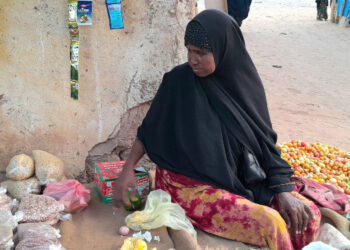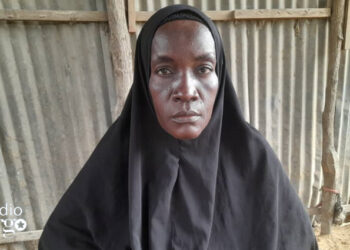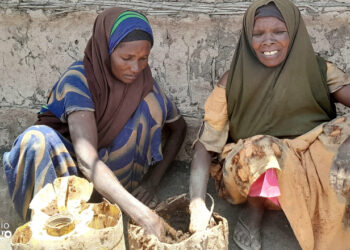(ERGO) – Yusuf Ali Bare, a pastoralist with 35 camels in a rural village in Somaliland, has been renting out four of his camels to a businessman running a camel camp near the town and is happy with the income.
He has been getting $80 a month since April for each of his camels, which has helped him and his family to earn a good steady income. They eat well and he has also enrolled two of children in Faroweyn school and pays $13 for their education.
“The biggest difference is our income. We get a regular income with no issues. We get food and education for my two daughters, we take care of our situation,” he said.
Yusuf, a father of eight, has kept the rest of his camels with them in Faroweyn village, including some that continue to provide them with milk.
He heard about livestock renting from his relatives who are also pastoralists and quickly put up his camels for rent, as recent years spent battling drought has made his livelihood precarious.
“Our situation was very difficult. During dry seasons it’s hard to get demand for livestock or sometimes their prices plunge. The livestock get thin. We no longer worry about those times,” he said.
Yusuf said his rented camels get good fodder, water, and free treatment. He visits them once every two months and noted that they are healthier than his remaining camels.
Although he has rented them out, he could repossess them whenever he needs. Also, they could be sent back to him if they stop producing the milk.
The owner of the camel farm, Mohamud Abdi Hersi, set up his business in early 2022 in Biyo-shine area, six kilometres outside Hargeisa. He says he came up with this idea after seeing many livestock perish and pastoralists losing their livelihoods to drought.
He currently keeps 28 camels on the farm, including five of his own. They are milked and he sells the milk in Hargeisa markets, using the income to pay rent to the camel owners like Yusuf, provide fodder for the camels, and keep a profit margin.
Mohamud keeps the camels in a shed. He has a farm growing fodder for them and a water supply. He has a veterinary worker to attend to the animals.
Mohamud explained that he enters verbal agreement with the pastoralists renting out their camels to him, with three witnesses to the agreement including one elder who helps solve disputes.
“We take over healthy animals that have given birth, then we send them the money at the end of the month,” he said.
Mohamud’s farm is one 12 similar farms in Hargeisa and surrounding villages offering livestock rental services.
Pastoralist Abdirahman Mohamed Adan has rented out three of his camels to one of these farms and stays with 20 of his camels that have survived the prolonged drought.
He herds them in Bali-Ahmed village, 65 kilometres from Hargeisa, and is making $240 from rental of the three camels that supports him, his wife and their five children.
He is pleased to have this opportunity of getting an income from his livestock without having to sell them off.
“Previously we would [herd them to] get them fodder, but now my camels are working and just like a shop they give us an income. We have got a good income,” he said.
He hopes to rent more camels so that he can improve his income, while the camels enjoy good fodder, water and treatment.











